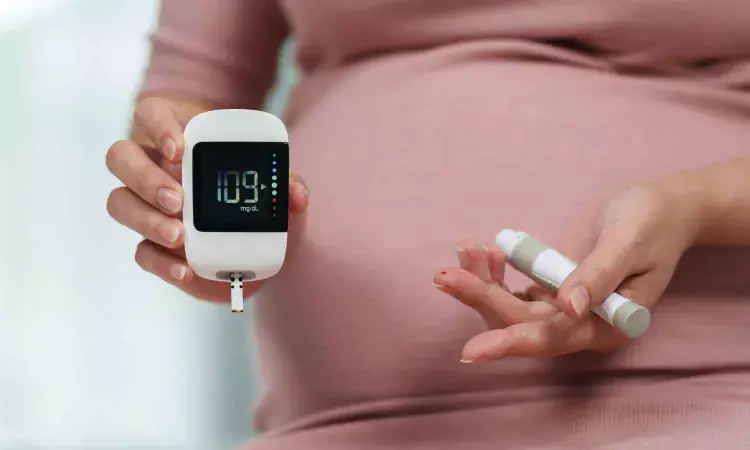- Home
- Medical news & Guidelines
- Anesthesiology
- Cardiology and CTVS
- Critical Care
- Dentistry
- Dermatology
- Diabetes and Endocrinology
- ENT
- Gastroenterology
- Medicine
- Nephrology
- Neurology
- Obstretics-Gynaecology
- Oncology
- Ophthalmology
- Orthopaedics
- Pediatrics-Neonatology
- Psychiatry
- Pulmonology
- Radiology
- Surgery
- Urology
- Laboratory Medicine
- Diet
- Nursing
- Paramedical
- Physiotherapy
- Health news
- Fact Check
- Bone Health Fact Check
- Brain Health Fact Check
- Cancer Related Fact Check
- Child Care Fact Check
- Dental and oral health fact check
- Diabetes and metabolic health fact check
- Diet and Nutrition Fact Check
- Eye and ENT Care Fact Check
- Fitness fact check
- Gut health fact check
- Heart health fact check
- Kidney health fact check
- Medical education fact check
- Men's health fact check
- Respiratory fact check
- Skin and hair care fact check
- Vaccine and Immunization fact check
- Women's health fact check
- AYUSH
- State News
- Andaman and Nicobar Islands
- Andhra Pradesh
- Arunachal Pradesh
- Assam
- Bihar
- Chandigarh
- Chattisgarh
- Dadra and Nagar Haveli
- Daman and Diu
- Delhi
- Goa
- Gujarat
- Haryana
- Himachal Pradesh
- Jammu & Kashmir
- Jharkhand
- Karnataka
- Kerala
- Ladakh
- Lakshadweep
- Madhya Pradesh
- Maharashtra
- Manipur
- Meghalaya
- Mizoram
- Nagaland
- Odisha
- Puducherry
- Punjab
- Rajasthan
- Sikkim
- Tamil Nadu
- Telangana
- Tripura
- Uttar Pradesh
- Uttrakhand
- West Bengal
- Medical Education
- Industry
Serum Ferritin Changes Increase Risk of Gestational Diabetes Mellitus: Study

A new study published in the journal BMC Pregnancy and Childbirth has found that variations in serum ferritin levels across pregnancy are independently associated with gestational diabetes mellitus (GDM). The study was conducted in China by Shaofei Su and fellow researchers.
The study analyzed 10,871 pregnant women as part of the China Birth Cohort Study. Serum ferritin was estimated in the first and second trimesters using the direct chemiluminescence method. The participants were divided into five quintiles based on the ferritin levels obtained during the first trimester. Trimester-specific median values categorized serum ferritin into four subgroups. GDM was diagnosed at 24–28 weeks of gestation by using the 75 g OGTT. Multivariate modified Poisson regression was used to estimate the independent relation between serum ferritin levels and the risk of developing GDM.
Key Findings
• Ferritin levels at Baseline: The median serum ferritin level at first trimester was 57.7 ng/mL.
• GDM Incidence: 13.5% of participants, i.e., 1,468 women developed GDM.
• Adjusted Risk Ratios for GDM by Serum Ferritin Quintiles:
•Second quintile: RR 1.099 (95% CI: 0.940–1.285)
• Third quintile: RR 1.228 (95% CI: 1.055–1.430)
• Fourth quintile: RR 1.186 (95% CI: 1.018–1.383)
• Fifth quintile: RR 1.179 (95% CI: 1.017–1.367)
Effect of a Change in Ferritin Levels
• First-trimester low ferritin level becoming high in second trimester: RR 1.376 (95% CI: 1.169–1.612)
• Ferritin level as high throughout the pregnancy: RR 1.351 (95% CI: 1.185–1.541)
Serum ferritin is a marker of iron stores and inflammation, which are both involved in the pathogenesis of insulin resistance. Elevated ferritin levels can cause oxidative stress and impair pancreatic beta-cell function, which results in glucose intolerance and a predisposition to GDM.
Researchers concluded that serum ferritin levels are an independent risk factor to develop GDM. Women with increasing ferritin levels from the first trimester to the second or throughout pregnancy are a particularly risky group. These results have high clinical relevance in establishing healthy iron homeostasis in early and mid-pregnancy as preventive measures against GDM and improvement of maternal health outcomes.
Reference:
Su, S., Gao, S., Zhang, E. et al. The association between serum ferritin levels and the risk of gestational diabetes mellitus: a prospective cohort study. BMC Pregnancy Childbirth 25, 95 (2025). https://doi.org/10.1186/s12884-025-07220-
Dr Riya Dave has completed dentistry from Gujarat University in 2022. She is a dentist and accomplished medical and scientific writer known for her commitment to bridging the gap between clinical expertise and accessible healthcare information. She has been actively involved in writing blogs related to health and wellness.
Dr Kamal Kant Kohli-MBBS, DTCD- a chest specialist with more than 30 years of practice and a flair for writing clinical articles, Dr Kamal Kant Kohli joined Medical Dialogues as a Chief Editor of Medical News. Besides writing articles, as an editor, he proofreads and verifies all the medical content published on Medical Dialogues including those coming from journals, studies,medical conferences,guidelines etc. Email: drkohli@medicaldialogues.in. Contact no. 011-43720751


